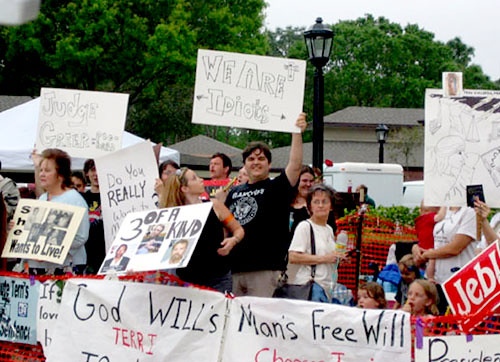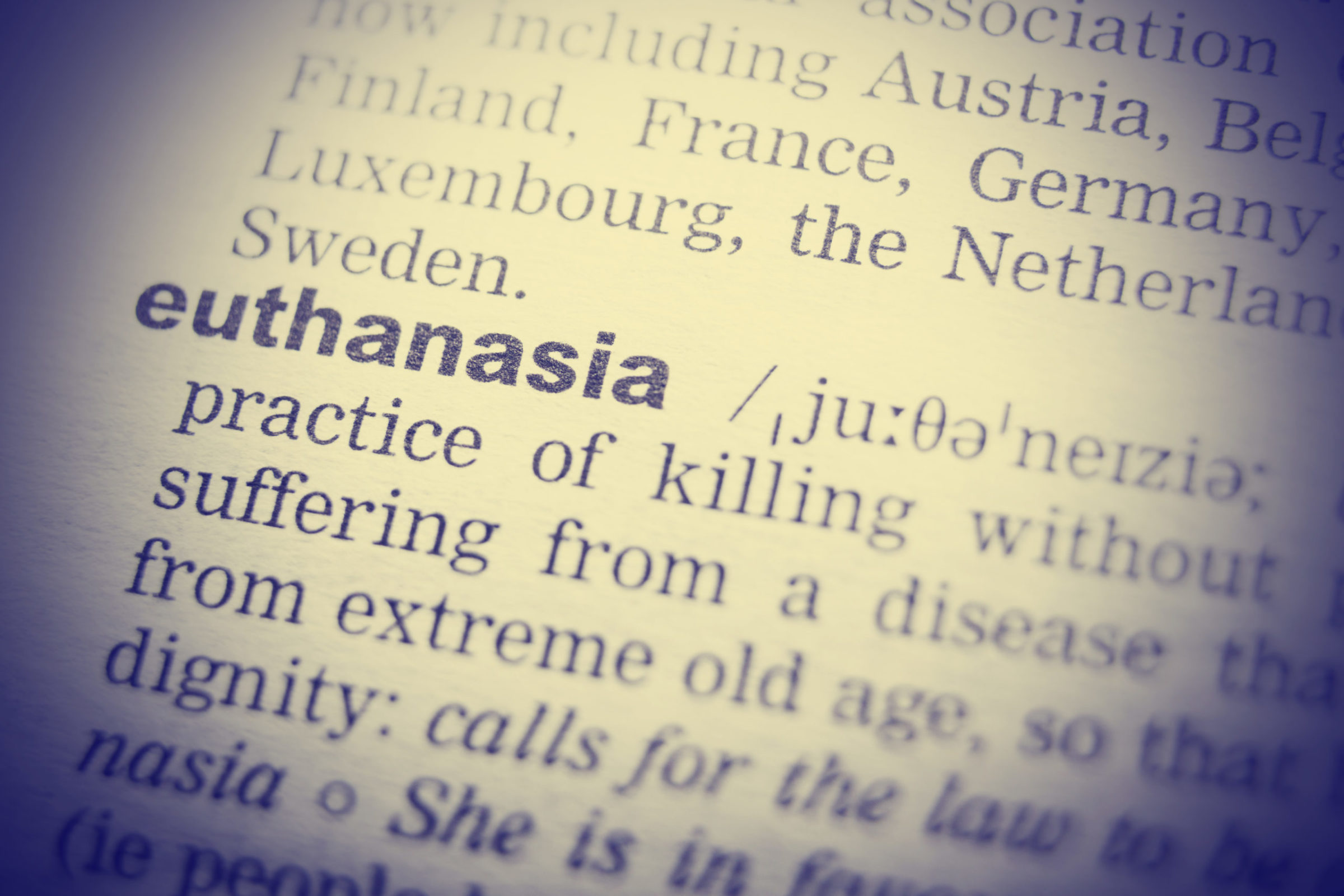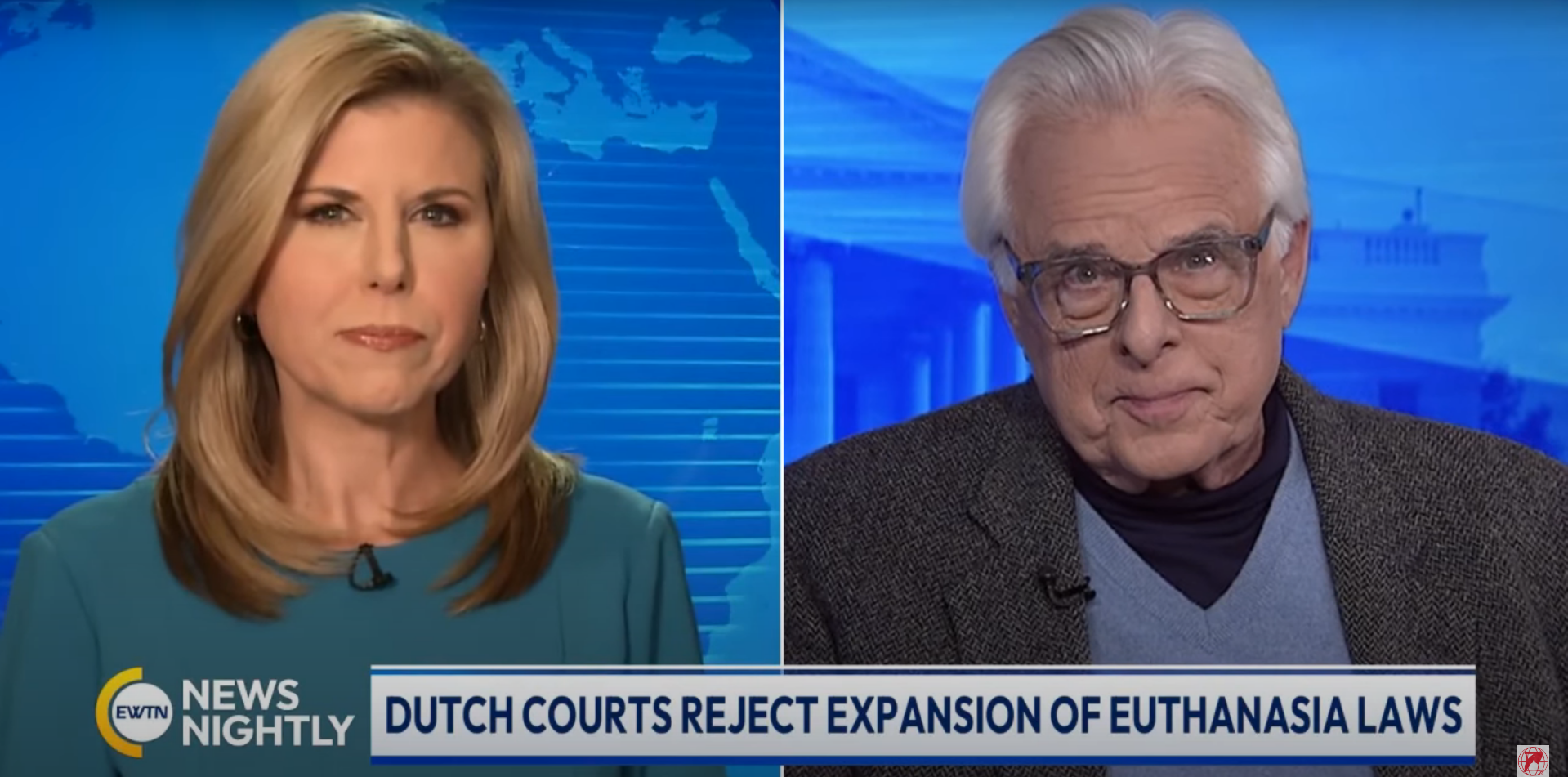


Death Activists Oppose Limits on Virtual Access to Assisted Suicide

Euthanasia’s Cultural Collateral Damage: Less Respect for Human Life

American Foundation for Suicide Prevention’s Anti-Suicide Walk Ignores Assisted Suicide
The American Foundation for Suicide Prevention is holding an overnight walk in Washington, D.C., on June 3 to fight suicide. From the “Why We Walk” promotion for “Out of the Darkness“: As you walk over 16 miles from dusk till dawn, you’ll find support and understanding in a community of others affected by suicide. Together, we will help put a stop to this leading cause of death. That’s great. But do the ads or promotional material even mention that Washington, D.C., legalized assisted suicide several years ago? Do they mention that people who ask for assisted suicide are almost never offered suicide prevention? And do they mention that studies are now showing a connection between assisted-suicide legalization and increasing suicide rates generally? Do the walk materials mention the issue at all? Not that I could find. In fact, the AFSP’s website apparently never mentions the issue at all — even though assisted suicide is one of our most contentious public-policy controversies. I searched for “assisted suicide,” “medical aid in dying,” and “MAID” and came up empty. Unless I missed it, the Foundation either ignores the issue altogether or hides it so deep in the bowels of its website that it is unfindable. I don’t mean to pick on the AFSP. Most suicide-prevention organizations ignore the assisted-suicide-advocacy elephant in the room. Perhaps they are afraid of controversy. Perhaps they aren’t really opposed to assisted suicide, which would make them pro-some suicides. Indeed, one such organization has actually recommended those who ask for assisted suicide should not be offered suicide prevention! To be true to their calling, anti-suicide organizations should oppose all suicides and should work publicly against laws that permit its facilitation. Failing to do so is an abdication of the life-saving responsibilities that these organizations have assumed.

Canadian Minister of Health: ‘Suicidal’ Are Not Eligible for Euthanasia
Assisted-suicide activists play a word game when they insist that the practice isn’t really “suicide.” They claim that a person who seeks death does so only because of serious illness or disability. If a person is healthy, this claim goes, he or she wouldn’t have wanted to die. Thus, assisted suicide isn’t suicide but merely medical aid in dying (MAiD). But the same kind of reasoning could be applied to anyone who seeks to die, regardless of the circumstances. Had the grieving mother’s child not been hit by a car, for example, she wouldn’t be thinking of killing herself. But for his chronic depression, the psychiatric patient wouldn’t want to die. Had the entrepreneur’s business not collapsed, he wouldn’t want to end it all. You get the idea. Canada’s health minister recently argued that suicidal people are protected from euthanasia. From a National Post column: When Pierre Poilievre last week criticized the Liberal government’s plans to expand doctor-assisted death to depressed people, the Conservative leader was admonished by Canada’s minister of mental health and addictions. Carolyn Bennett accused Poilievre of being “totally irresponsible” and misrepresenting what medically assisted death would mean for people with a mental disorder, saying that “all of the assessors and providers for MAID are purposely trained to eliminate people that are suicidal.” Excuse me? By definition, someone who wants to die is suicidal. Indeed, suicide is about what is done, not why. (Technically, lethal-injection euthanasia in Canada is a legal homicide, but the desire to be euthanized is properly characterized as a suicidal ideation.) This makes the Canadian health minister’s blithe assertion that suicidal people are protected from euthanasia plainly ridiculous. All people euthanized legally by doctors in Canada were suicidal. Otherwise, they wouldn’t have asked to be killed in the first place. The minister’s sophistry reveals the insidious nature of euthanasia advocacy. Activists push suicide as an answer to serious health difficulties, while pretending that the kind of suicide they support isn’t really suicide. But it is. If assisted-suicide was as compassionate as its supporters claim, they would stop hiding behind ridiculous word games.

Suicide Tourism Comes to Oregon

The Fear of Suffering is Driving Us Crazy

Court Finds No Constitutional Right to Assisted Suicide in Massachusetts

Wesley J. Smith Discusses Dutch Court Decision to Strike Down Measure that Expands Euthanasia Laws
